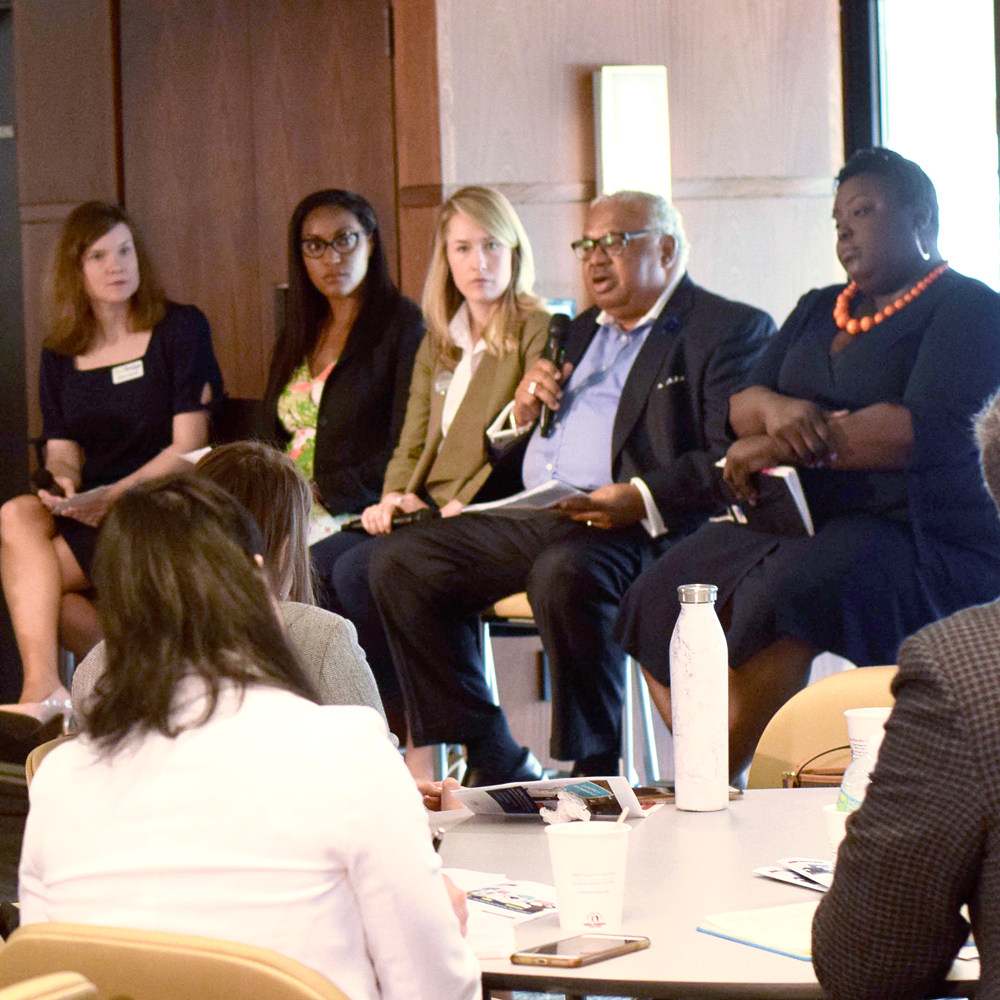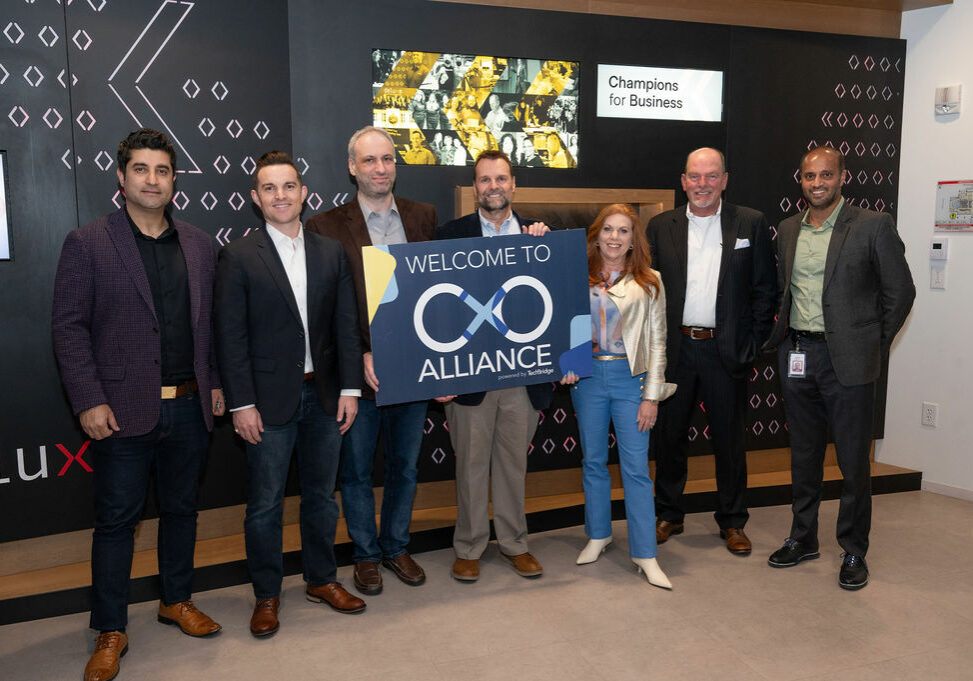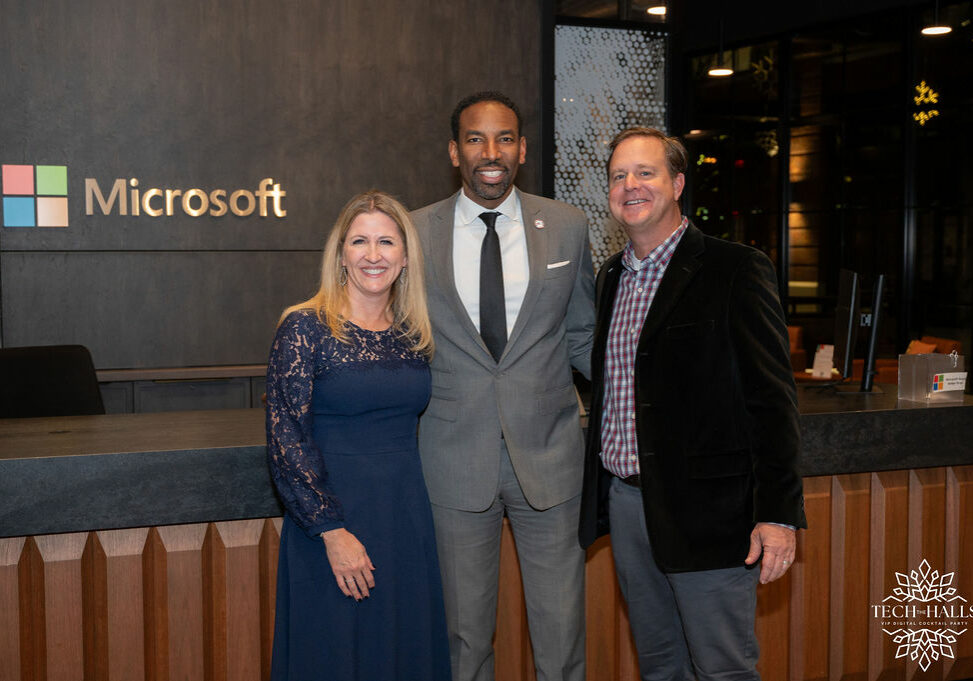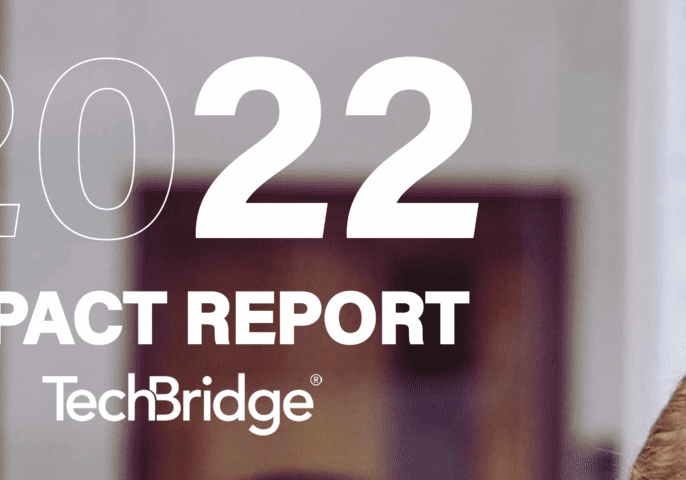Array
An Atlanta child living in poverty has less than a 4% chance to escape it. This is how Jay Bailey (President and CEO of the Russell Center for Innovation and Entrepreneurship) kicked off our Nonprofit Innovation Summit. At the summit, we brought together Atlanta nonprofit and foundation community members working hard every day to move Atlanta from worst to first in economic mobility.
Tene Traylor (Fund Advisor for the Kendeda Fund) reminded us of our great responsibility: The work of racial equity is everybody’s work.
We know that in order to effectively break the cycle of generational poverty, communities must better coordinate services and use data to fund the combination of programs and services most effective in moving residents from survival through stability to success. When we look at the sectors of importance for our nonprofit community, it’s not surprising that pathways out of poverty aren’t predictable. If you address a community resident’s needs, you start with basic survival: food, shelter, and healthcare. 39% of nonprofits served by us fall in this category. Then you focus on stability: education, case management, and supportive services. 60% of our nonprofit partners focus here. But when you get to the third category, success (living wages to make housing affordable, financial literacy, and asset building so families never fall back into poverty), our community has not invested enough resources. Only 1% of TechBridge nonprofits focus on success.
Breaking the Cycle of Poverty through Collective Action
The Nonprofit Innovation Summit collective action panelists focused on the systems changes that their collaboratives are driving in order to improve community outcomes in education, income, and health.
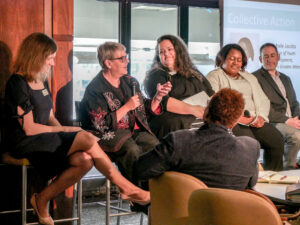
Michele Jacobs, (United Way of Greater Atlanta’s Youth Director) and her Opportunity Youth Collaborative partners are coming together to improve education and employment pathways for the 90,000 opportunity youth in the 15-counties metro Atlanta region.
Cindy Simpson (COO of Chris 180) and The Westside Connect partners are focused on building a safe and resilient community with no wrong doors. Partners are helping community residents to obtain health, education, employment, and financial services. Westside Connect wants to learn the mixture of services and dosage of interventions producing the best outcomes and wants to share its knowledge with other communities.
Ken Zeff (Executive Director for Learn4Life) is bringing together what once was a very fragmented education scene. All the metro-Atlanta superintendents are coming together to improve kindergarten readiness, third-grade reading, middle school math proficiency, high school graduation, and post-secondary enrollment and completion. Through its Bright Spot initiatives, Learn4Life is lifting up its successful strategies and scaling them up to serve more schools and students.
Jenny Taylor (Vice President of Career Services at Goodwill of North Georgia) is also focused on data sharing and service coordination to improve what once was a fractured, siloed workforce development system. The system is working on developing career pathways where community residents can obtain the skills to move from first jobs through living-wage and sustainable jobs to thriving careers.
Each Nonprofit Is a Building Block in Collective Action
From our 19 years of experience, we know that our nonprofits focused on poverty alleviation have invested the least in their own capacity. Each of these nonprofits is a critical part of building pathways out of poverty. To enable our nonprofits to develop seamless coordination of care for our community residents, we have our work cut out for us. 23% of TechBridge nonprofits are only progressing towards sustaining their programs. 69% are merely sustaining their programming and don’t have a growth trajectory. Only 8% are in a growth stage where they are scaling or replicating their models. None of our current nonprofits are innovating to the point that they have all three of the critical elements necessary to participate in collective action data sharing and service coordination fully:
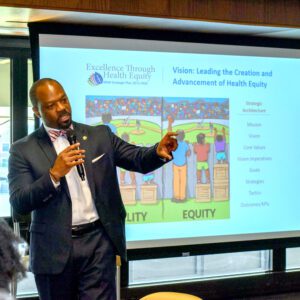
- a data strategy that maps to the community change the nonprofit and its partners are driving
- robust data management systems capable of sharing data with the community
- and financial sustainability
We continue to build each nonprofit’s capacity so that they can scale and replicate their program’s models and fully participate in collective action data sharing and service coordination.
At the summit, the panelists spoke of the importance of performance measurement and data management in transforming nonprofits to prepare them for collective action.
Michael Lucas (Deputy Director of the Atlanta Volunteer Lawyers Foundation) encouraged us to discover What data do we need to answer the big question — how do we move the needle?
Michael Lucas shared how Atlanta Volunteer Lawyers Foundation is using data to show its impact: preventing evictions and requiring landlords to do mold remediation is improving health and academic outcomes for students. Their success in their first community is now being replicated in additional communities.
Tene Traylor (The Kendeda Foundation) let us know that nonprofits shouldn’t be afraid to learn what things are not working. It’s okay for nonprofits to pivot. Nonprofits should let their funders know what they learned in the process. Tene encouraged nonprofits to be transparent with foundations and to answer these questions:
- What change are we driving?
- What didn’t work?
- How can foundations help nonprofits overcome obstacles?
- How can nonprofits learn from foundation partners?
Dr. Hefner (Vice President of Strategy and Institutional Effectiveness) shared the Morehouse School of Medicine (MSM)’s journey in striving for health equity. At MSM every area, every goal, and every strategy has a metric with a target measure and their progress is evaluated regularly.
Curley Dossman (President of the Georgia Pacific Foundation) implored us to Don’t just express a passion [or] love for the work alone. What’s the impact you wish to drive?
It’s necessary for funders to know how nonprofits are partnering with each other; this helps investments lead to greater impact.
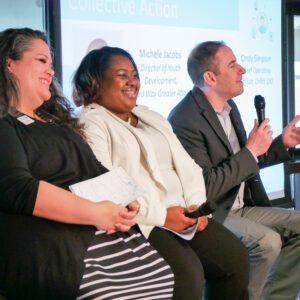
Ilham Askia (Executive Director of Gideon’s Promise) and her team are changing the way legal representation is being provided for poor communities. They are moving the culture of public defender offices to be client-centered.
Gloria Cox (Giving Leader for the Chick-fil-A Foundation) shared how even foundations are on a journey with data management. Data management helps foundations to be transparent with their customers on the impact they are driving in a community. Chick-fil-A now has better data at its fingertips to share the outcomes achieved by its nonprofit partners and the impact we are collectively driving as a community.
Qaadirah Abdur-Rahim (CEO of the Future Foundation) talked about the journey Future Foundation has been on as they are working to ensure their students keep up a 100% high school graduation rate. They are using the knowledge gleaned from their data to scale up, be innovative, and ultimately disrupt poverty.
Finally, while as a community we have our work cut out for us (going from worst to first in economic mobility), let us heed Jay Bailey’s appeal (as first spoken by Nelson Anderson): Let us continue to plant seeds that will grow trees whose shade we may never sit under.
See the photo recap on Flickr.
